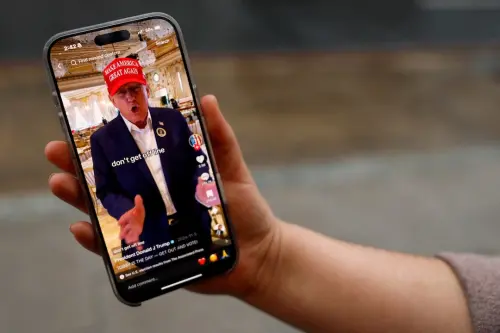In the high-stakes TikTok sale, the White House has taken on a role akin to that of an investment bank, with Vice President JD Vance overseeing the auction. This level of direct involvement by the nation's top office adds complexity to reaching an agreement.
Vance's chief advisor, former Federal Election Commission Chair Sean Cooksey, serves as the primary contact for bidders of TikTok's U.S. assets, providing guidance and recommending adjustments to their proposals, according to bidder Reid Rasner, an entrepreneur from Wyoming.
President Trump stated that several parties are bidding on the viral short-video app, which faces potential shutdown in the U.S. unless acquired by an American entity by next month.
Noteworthy is the White House's unusual direct oversight of the bidding process, as highlighted by government ethics scholar Richard Briffault, who is a faculty member at Columbia Law School. Briffault emphasized the unprecedented nature of this level of government involvement in a private deal, noting the lack of clear strategic significance in this case.
Various prominent entities, such as Susquehanna International Group, General Atlantic, Kohlberg Kravis Roberts, and Sequoia Capital, are backers of ByteDance's U.S. operations.
The sale has attracted attention from other affluent individuals and entrepreneurs. For instance, Project Liberty founder Frank McCourt is collaborating with Canadian investor Kevin O'Leary and Reddit co-founder Alexis Ohanian. Social media personality Jimmy Donaldson is reportedly in talks to join this group.
Trump has hinted at the possibility of the U.S. acquiring a 50% stake in TikTok's American business.
McCourt highlighted the atypical nature of the bidding process, citing the absence of defined assets or valuation criteria and the lack of an investment bank leading the negotiation for ByteDance.
In navigating the negotiations, potential buyers reveal that the talks are ongoing, with a deadline of April 5 set by Vance for reaching an agreement.
The motivations behind the White House's involvement in the TikTok sale remain unclear, in contrast to previous instances where government intervention aimed to prevent corporate misconduct, foreign control of American firms, or financial sector instability.
The sale price of TikTok, contingent on factors like the inclusion of its proprietary algorithm, is subject to wide-ranging estimates. Analysts suggest varying valuations, from $40 billion to $100 billion, with the algorithm considered a key asset.
Rasner, who submitted a bid for the U.S. operations and algorithm, expressed determination in navigating the competitive bidding process and emphasized the complexity of the negotiations. He refrained from disclosing his financial backers and underscored the challenges inherent in the process.
